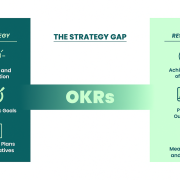Before beginning the process, it is critical to understand that property valuation in Singapore entails more than simply assigning a number to a property. It is a structured assessment that reflects current market conditions, recent transactions, and the property’s characteristics. A clear grasp of the process and how valuation reporting works ensures you can use the results to make informed decisions, whether you are selling, refinancing, or simply reviewing your asset’s worth.
Clarify Why You Need the Valuation
Before arranging for a property valuation in Singapore, it is important to understand the aim. A valuation for a bank loan, for example, may focus on different details than one for selling a property. Knowing your main objective sets the direction for the assessment and ensures the resulting figures are relevant for your decision-making. It also allows you to provide the valuer with the right context and supporting details.
Choose the Right Type of Valuation
There are several valuation methods, each suited to different situations. The sales comparison approach is used for residential properties, estimating value based on recent transaction data. Commercial and industrial spaces might rely more on the income approach, assessing potential rental returns. A discussion with your valuer about the type that best fits your needs can save time and prevent confusion when reading the report later.
Prepare Supporting Documents
Your valuer will need access to relevant paperwork such as floor plans, land titles, renovation records, and past valuation reports. These details help verify property specifications and support accurate assessments. Missing or incomplete information may hinder the process or result in conservative estimates that do not accurately reflect the property’s market position.
Understand the Factors That Influence Value
A valuation is never dependent on a single factor alone. Location, property condition, recent comparable sales, and even market sentiment all come into play. While you cannot control the broader market, you can ensure the property is presented in its best state before the inspection. This could include performing minor repairs, cleaning up communal spaces, or offering information on changes that add value.
Be Present During the Inspection
Being on-site for the inspection allows you to answer questions directly and clarify features that may not be obvious. Mentioning any unique aspects of your house, such as custom-built fixtures or energy-efficient upgrades, helps ensure that they are included in the value report. It is also a chance to understand the valuer’s process and what they are focusing on.
Read the Valuation Reporting Carefully
Examine the value reporting in detail as soon as you obtain it. Check that the property description is accurate, that all significant features are mentioned, and that the comparables used make sense for your area. If you notice something odd, you can raise it immediately for clarification. Understanding the report not only helps in your current transaction but also prepares you for future valuations.
Know How to Use the Report Strategically
A valuation is more than just a number. In a sale, it can guide your asking price, while in refinancing, it can influence your borrowing power. You might also use it to negotiate with potential buyers or justify a rental rate. When planning your next move, consider how the figures and details in the valuation reporting align with your goals and market conditions.
Keep an Eye on Market Timing
The property market is dynamic, and valuations can shift within months. If your valuation is for a transaction that will not take place immediately, you might need to update it. This is particularly important in periods of rapid price changes, where relying on outdated data could lead to missed opportunities or unrealistic expectations.
Factor in the Cost and Validity Period
Valuations come with a fee, and they are typically valid for a limited time, often three to six months. If you need more than one valuation within a short span, consider coordinating the timing to avoid unnecessary repetition. This can be especially relevant when multiple stakeholders, such as buyers, sellers, and banks, are involved.
Build a Relationship with a Trusted Valuer
A good working relationship with a valuer means you have a go-to professional who understands your property portfolio and market segment. This can make future valuations smoother and more aligned with your needs. It also helps when interpreting valuation reporting, as you have someone familiar with your circumstances to explain the reasoning behind the figures.
Being informed about the process of property valuation in Singapore helps you secure accurate figures that reflect your property’s real market position. From setting clear objectives to interpreting valuation effectively, each step ensures you make confident and well-supported decisions. Staying engaged, prepared, and aware of market timing can help you get the most from your valuation experience.
Visit CKS Property to arrange a professional valuation that aligns with your goals.













Comments